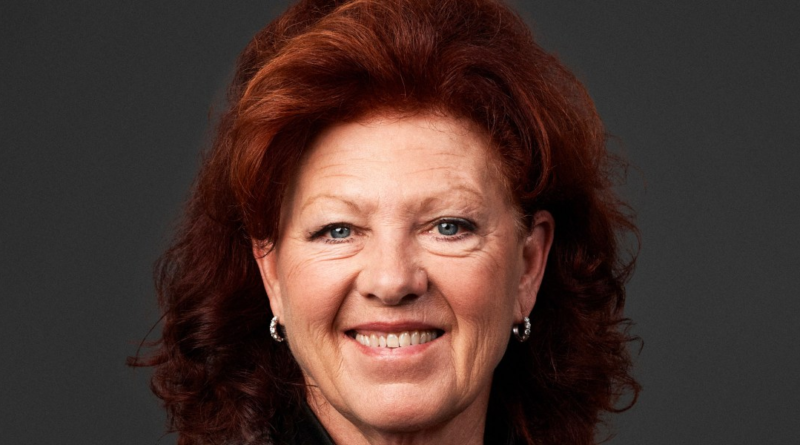Walgreens’ new interim CEO Ginger Graham isn’t the only temporary member of the pharmacy giant’s C-suite
Roz Brewer, one of only two black woman CEOs of Fortune 500 companies, stepped down as CEO of Walgreens Boots Alliance on Friday. Replacing her in an interim capacity will be longtime board member and pharma industry executive Ginger Graham. That means Walgreens’ top two jobs will be held by executives with the interim title. Former chief financial officer James Kehoe left Walgreens in August and was replaced by global controller Manmohan Mahajan until the company can find a permanent replacement.
A board member since 2010, Graham was named the board’s lead independent director in October 2022, a role considered to be pivotal in managing the relationship between a board, its chair, and their stakeholders. Stefano Pessina will remain Walgreens’ executive chairman.
Graham ticks all the boxes for corporate America leadership: Harvard MBA (class of ’86), multiple CEO gigs, and prestigious board seats. She’s also a health care veteran with experiences across the notoriously complex industry, from developing new drugs at pharmaceutical companies to helming a global medical technology manufacturer to leading a health care consulting firm.
“Ginger is the ideal person to serve as interim CEO, given her leadership experience across multiple segments of the health care industry, deep knowledge of WBA, and strong operational skills,” Pessina said in a statement announcing the leadership changes.
Walgreens declined to comment beyond an already issued press release.
Graham’s health care experience comes at a pivotal time for Walgreens, as it tries to expand beyond its core pharmacy business. Under Brewer’s leadership the company made several multibillion-dollar acquisitions to expand into urgent care, primary care, and specialty pharmaceuticals. Wall Street, however, has been cool to the expansion push—so much so that on a January investor call, executives had to assure investors that M&A would take a backseat in the immediate future, as the company focused on integrating its new acquisitions into Walgreens.
Brewer’s departure was sudden although not entirely unexpected, given she was the architect of Walgreens’ expansion strategy into health care. “With the increased focus on growing the Walgreens Healthcare segment…it makes sense to retrench and search for a new leadership team with more extensive backgrounds in health care services,” an Evercore analyst told Reuters.
Most of Brewer’s experience is in retail; she previously held positions at Starbucks and Walmart. “Health care is not Ms. Brewer’s forte,” a managing director at consulting firm GlobalData told the New York Times. The company’s financial performance has also been lackluster, with its stock hitting an 11-year low in May.
Graham said she will look to steady the company as it begins its search for a permanent CEO. “My focus will be on our people and our operations, working together to drive shareholder value creation and ensuring a smooth transition as soon as we identify the next CEO for the future,” she said in a statement.
She’ll presumably have to find a permanent CFO as well, given that Kehoe left for fintech giant FIS Global just weeks before Brewer left the company.
Graham’s most recent experience prior to her new interim job was CEO of health care consultancy Two Trees Consulting, from 2007 to 2016. Before her almost decade-long stint as a consultant, she worked in drug development as the chief executive of Amylin Pharmaceuticals, which focuses on diabetes medication, from 2003 to 2007. One of the most prominent drugs that received FDA approval under Graham’s watch was blood sugar control medication Byetta. It became so popular that Amylin had to ask doctors not to start patients on the medication until a new manufacturing plant was completed, because it couldn’t meet demand, the New York Times reported at the time.
Before she developed and sold diabetes drugs, Graham was group chairman at Guidant, one of the leading makers of cardiological medical devices, like pacemakers and stents. In her role she had a broad mandate, overseeing the company’s operations in the U.S., Europe, Japan, and emerging markets, according to documents filed with the SEC. Guidant was formed after Eli Lilly, where Graham got her first job after business school, divested its Advanced Cardiovascular Systems (ACS) division, which she led at the time. Graham was among the executives who spearheaded the move to take ACS public, in 1994 under the new name Guidant.
In the early 2000s, she contributed several articles to the Harvard Business Review. One of which, published in 2002 and titled “If You Want Honesty, Break Some Rules,” appears a precursor to today’s trendy leadership style of empathy and transparency. When leaders focus on “top-down managerial control” they end up creating a “culture poisoned with speculation, blame shifting, and self-protective behavior,” she wrote. She went on to encourage executives to “break some of the rules of traditional management” to build better corporate cultures. During her time there, Guidant would be named one of Fortune’s “Best Companies to Work For in America” and one of IndustryWeek’s “100 Best Managed Companies in the World.” Another equally prescient, although perhaps more questionable, article extolled the importance of lobbying.
Graham would eventually land a spot on the faculty at the Harvard Business School in 2008. While there, she taught classes at the Arthur Rock Center for Entrepreneurship.
Despite taking over as interim CEO, Graham will have to deal with a struggling stock price. Walgreens stock has fallen 36% since the start of the year, including 6.1% on Friday after the announcement about the CEO stepping down.

